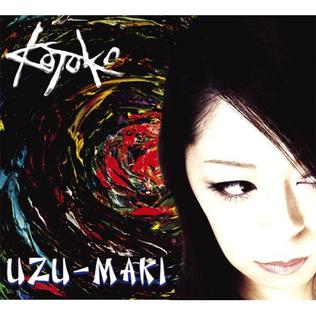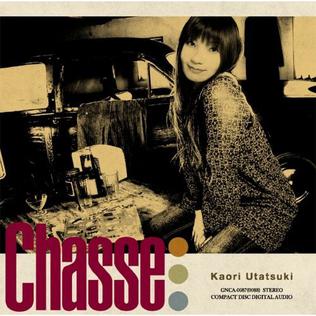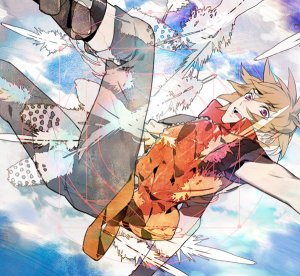
"Re-sublimity" is Kotoko's second maxi single under Geneon Entertainment, released on November 17, 2004. The title track was used as an opening theme for the anime series Kannazuki no Miko while "Agony", its B-side, was used as the ending theme. "Suppuration -core-" was used as a soundtrack for the anime and a rearrangement of the song "Suppuration" appears in her Hane Live Tour 2004 Limited Album. The single peaked at number eight on the Oricon charts and charted for 12 weeks. Since it sold 50,119 copies, this is considered Kotoko's best selling single.

Endless Loop is overall, the fifth EP by Japanese singer Eiko Shimamiya but this is her second EP produced by both I've Sound and Geneon Entertainment. It was released on December 14, 2005. The single only reached #86 in the Oricon charts selling roughly 2,282 copies on its first week.

Hane is the first full album by the Japanese artist Kotoko. It was released on April 21, 2004. Later on June 20, 2006, she released an English version of this album with the same title Hane but without its kanji.

Seed is Mami Kawada's debut album which was released on March 29, 2006. This album is under Geneon and was produced by I've Sound. This album also includes her first two singles "Radiance / Chi ni Kaeru: On the Earth", and "Hishoku no Sora" and the collaboration single "Face of Fact " with KOTOKO. It peaked at the #12 spot in the Oricon charts and charted for 5 weeks.

"Chercher" is Kotoko's sixth maxi single under Geneon Entertainment. The title track was used as an ending theme for OVA of Maria-sama ga Miteru. The lyrics of the song was written by the creator of Maria-sama ga Miteru, Oyuki Konno.

"Hayate no Gotoku!" (ハヤテのごとく!) is Kotoko's eighth maxi single produced by I've Sound and released on May 23, 2007, under Geneon Entertainment. The title track was used as the first opening theme for the anime series Hayate no Gotoku, episodes 1-26. The single peaked at #7 in the Oricon charts selling 19,921 units in its first week of release.

"Shichiten Hakki Shijou Shugi!" (七転八起☆至上主義!) is Kotoko's ninth single, produced by I've Sound under the Geneon Entertainment label. The title track was used as the second opening theme for the anime series Hayate no Gotoku, episodes 27-52. It peaked at the #8 position in the Oricon charts and sold a total of 15,749 copies for two weeks. As of November 26, 2007, it has sold a total of 28,619 copies.

UZU-MAKI is the 3rd album of singer Kotoko under Geneon Entertainment. It was released on December 13, 2006.

"Shining Stars Bless" is the debut single of I've singer Kaori Utatsuki under Geneon Entertainment. It was released on August 1, 2007. The title track was used as the opening theme for the visual novel/anime Nanatsuiro Drops. It reached #23 in the Oricon charts and has sold a total of 5,339 copies in its first week.

"Chasse" is Kaori Utatsuki's 2nd single under Geneon Entertainment. It was released on November 21, 2007. The title track was used as the third ending theme for the anime series Hayate no Gotoku!. It managed to get in the #30 spot in the Oricon charts with a total sales of 4,984 copies in its first week.

"Real Onigokko" (リアル鬼ごっこ) is Kotoko's tenth maxi single under Geneon Entertainment, released on December 19, 2007. The title track was used as the theme song for the Japanese science fiction thriller movie of the same title, launched in Japan in 2008, starring Takuya Ishida and Mitsuki Tanimura. Real onigokko means "real tag game" in English. The single peaked at the #15 position in the Oricon charts selling 7,588 units in its first week of release.

"Red Fraction" is the first single of I've Sound singer Mell and her first single under Geneon Entertainment. Currently, this is Mell's most successful single as it reached #11 in the Oricon charts and sold a total of 38,006 copies.

"Virgin's High!/Kicks!" is Mell's third single under Geneon Entertainment. "Virgin's high!" was used as the opening theme for the anime series Sky Girls. The single reached #15 in the Oricon charts and sold 19,800 copies. This is the first single wherein Kazuya Takase only composed and arranged one song for Mell.

"Blaze" is Kotoko's eleventh maxi single produced by I've Sound under the Geneon Entertainment label. The single was released on March 12, 2008. The title track was used as the second introductory theme for the anime series Shakugan no Shana Second, starting with episode 16 which was broadcast on January 31, 2008. The B-side, "Sociometry", was used as the ending theme for Shakugan no Shana Second. This is Kotoko's second tie-in with the anime series after her "Being" single.

Savia is an album by J-pop singer Mami Kawada. It is her 2nd studio album overall produced by I've Sound and Geneon Entertainment. The album was released on March 26, 2008.
"L'Oiseau bleu" is a maxi single released by the J-pop singer, Mami Kawada. This was scheduled to be released on June 24, 2009. This is Kawada's first single that has no anime tie-in and also to the first be produced by I've Sound producer C.G mix. This single has also been contained in the I've Sound 10th Anniversary 「Departed to the future」 Special CD BOX which was released on March 25, 2009.

Spyglass is the first mini-album by the Japanese singer Kaori Utatsuki. This album was scheduled to be released on August 5, 2009 under the Geneon Universal Entertainment label.

"Screw" was 14th single by the J-pop singer, Kotoko, was released on December 16, 2009. The title track was used as the theme song for Mamoru Oshii's film Assault Girls.

Anime's Compilation Best is the first compilation album of J-pop singer Kotoko under Geneon Entertainment. It was released on December 23, 2009.

"Kimi no Shinwa ~ Aquarion Dai 2 Shou" is the third single by American-born Japanese recording artist AKINO. It is the first single that also features her brothers Akashi and Aiki and sister Kanasa, backing her up as their band bless4. It is used as the opening theme of the anime Aquarion Evol, the sequel to Genesis of Aquarion for which AKINO also performed the theme songs. On her blog, AKINO described the song as having gospel stylings. The single's B-side "Gekkō Symphonia" serves as Evol's ending theme and is a duet between AKINO and her younger brother AIKI. AKINO described it as a love song, but she stated that it was embarrassing to do this as the first duet with her brother. Both songs were written by Gabriela Robin and composed and arranged by Yoko Kanno.



















